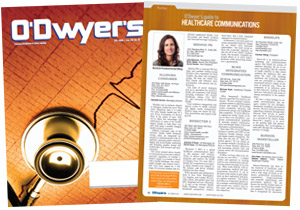|
|
The Drug Enforcement Agency labels marijuana a Schedule I drug, a classification for “drugs, substances or chemicals with no currently accepted medical use and a high potential for abuse.”
Most in the United States disagree. The Pew Research Center reports that just over three-quarters of Americans believe marijuana has legitimate medical uses, and significant majorities within states think it should be legalized.
This puts pharma businesses in an awkward position, as new product development or even external communication could rankle the DEA.
Fortunately, controversial topics generate buzz and data, which brands can use to better understand the marketplace. The Cision Global Insights team analyzed more than 360,000 medical marijuana discussions around the world.
By researching blogs, forums, social channels and digital publications from 14 countries, they discovered where medical marijuana conversations took place, the most popular topics discussed and people’s most widely-held beliefs.
|
|
The insights from this data show brands within and outside the pharma industry about the importance of localization and the opportunities and hazards of market disruption.
Localization of messaging
Like apple pie and football, discussion of medical marijuana is supremely American. The U.S. has dominated much of the online discussion around the topic, producing 93.7% of it.
That number likely stems from its large population, widespread Internet usage and the social, political and emotional turbulence surrounding the issue within its borders, according to Mathilda Joubert, a Vice President of Cision’s Global Insights.
Outside of the U.S., conversation about medical marijuana was nearly nonexistent, with the Netherlands (3.5%) and Canada (1.7%) following closest behind. Many countries, including Colombia, the Czech Republic and Switzerland, had virtually no digital conversations about medical marijuana.
What does this show brands? Communication isn’t one-size-fits-all. A message that resonates to one audience may fall flat with others.
For example, the messaging a pharma company uses to reach an audience in a country that has completely legalized medical marijuana will differ from that used in the United States, where communication would likely heavily center on education or advocacy.
In fact, our research shows pharma companies have an opportunity to erase prejudices that exist about their brands. Many discussing medical marijuana online believe pharma companies aren’t providing it because a non-patentable product doesn’t match its moneymaking interests. Discussing the controversy between the state and federal governments could ease criticisms and engender loyalty.
As digital communication progresses, brands must aim for targeted messages that reach niche audiences. Using marijuana as an example, online conversation in Alaska, Colorado, Oregon and Washington will differ from states in which it is completely prohibited. That’s where the geolocation options provided by many social networks, including Facebook and Twitter, come in handy.
Of course, geography is only one factor influencing the message. Identify the networks, forums, publications and influencers where your target audience go for information and what they specifically talk about while there.
In the U.S., Facebook is a large forum for medical marijuana discussion, and people tended to post about three topics: how medical marijuana helped them cope with seizures and pain, why they chose marijuana over pharmaceuticals, and how to dose THC and CBD, the two main ingredients in cannabis.
Having this type of information enables brands to cultivate the most effective content and engagement strategies.
Whether a native advertisement or post to a forum, furthering conversation can establish your brand as a thought leader. Never pander to your audience though; they will recognize insincerity and quickly point out inconsistencies.
Market disruption
Conversations on Facebook revealed that much of the appeal of medical marijuana derives from its weak side effects and the perception that it matches or exceeds the effectiveness of prescription drugs. Additionally, medical marijuana has a cost advantage over prescription drugs.
In medical marijuana, many see only positives, so what should pharma brands do?
A strategy of staying the course has doomed many businesses. Taking a proactive approach to identify disruptions before they become mainstream preserves brand health and often opens doors to new business opportunities.
Adopting the disruption into your business plan, which would be difficult for pharma companies to do in light of competing laws, isn’t always the right move or even possible as companies deal with patents, a collaborative economy and myriad other variables.
However, brands can clarify misunderstandings within their target audiences, message around pitfalls and position or pivot products in a unique way so they don’t compete directly with the disruptor.
The earlier a brand can identify a disruptor, the better. Brands don’t have the luxury of time. Reacting too late is often as effective as not reacting at all.
This makes monitoring social and digital media key because they provide real-time views of trends, evolving perspectives and emerging technologies. As more and more people take to social media, it elevates the need for brands to have a comprehensive social listening tool like Cision’s.
Almost 20 years has passed since California legalized medical marijuana, and more than half the country still hasn’t approved it. However, slow change is rare in this day and age. Look at Uber and Lyft, Netflix and Hulu, and Google and Amazon. They have reshaped industries in just the last few years. A disruption that catches a brand off guard has serious consequences, including a significant loss of market share.
Though competing legislation may have tied the pharma industry’s hands from public action, it still has options for behind-the-scenes moves that could position it for success when and if the medical marijuana disruption stretches from coast to coast.
* * *
Mark Thabit is CMO of Cision.




 Lo Isidro, senior director at Real Chemistry with more than a decade of strategic communications and PA experience, has joined Narrative Strategies.
Lo Isidro, senior director at Real Chemistry with more than a decade of strategic communications and PA experience, has joined Narrative Strategies. Nelson Fernandez, former North American chair of APCO Worldwide and managing director of Burson-Marsteller, has joined Volunteers in Medicine Berkshires as director of communications and PA.
Nelson Fernandez, former North American chair of APCO Worldwide and managing director of Burson-Marsteller, has joined Volunteers in Medicine Berkshires as director of communications and PA. Lilit Bargar, who was most recently an EVP in the healthcare practice at Weber Shandwick, comes on board at GCI Health as EVP, corporate practice lead.
Lilit Bargar, who was most recently an EVP in the healthcare practice at Weber Shandwick, comes on board at GCI Health as EVP, corporate practice lead.
 Five ways that successful thought leaders are made.
Five ways that successful thought leaders are made.


 Have a comment? Send it to
Have a comment? Send it to 
No comments have been submitted for this story yet.